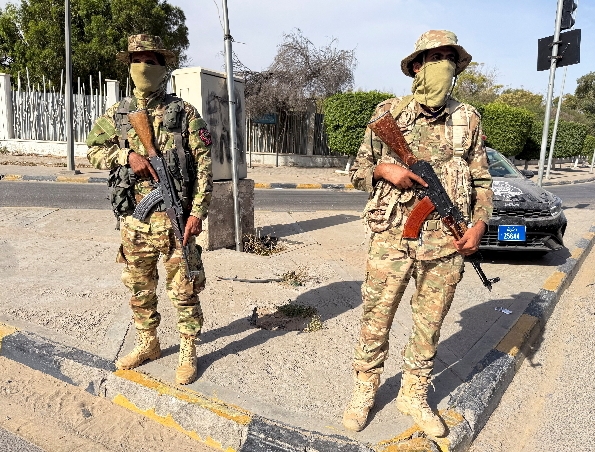Libyan Prime Minister Abdul Hamid Dbeibeh announced that security was restored in Tripoli after violent clashes following the death of Abdel Ghani al-Kikli. Dbeibeh praised the security forces and called for the dismantling of irregular groups. The country remains divided between two rival governments, with ongoing political instability and stalled efforts for national elections.
Libyan Prime Minister Announces Restoration of Security in Tripoli After Deadly Clashes


Libyan Prime Minister Abdul Hamid Dbeibeh announced on Tuesday that security had been restored in Tripoli following violent clashes that erupted in the capital. The unrest began on Monday, particularly in the Salah al-Din and Abu Salim neighborhoods, after the reported death of Abdel Ghani al-Kikli. Kikli was the head of the Stability Support Apparatus, a force aligned with the Presidential Council, according to Libyan media sources.
In a statement posted on X, formerly Twitter, Dbeibeh expressed gratitude to the security forces. “I commend the ministries of interior and defense, and all members of the army and police, for the major achievement in restoring security and asserting the authority of the state in the capital,” he said. He further emphasized, “What has been achieved today affirms that legitimate state institutions are capable of protecting the nation and preserving the dignity of its citizens.”
Dbeibeh also used the occasion to call for the dismantling of all “irregular groups,” urging that the country must uphold the principle that there should be no power centers outside state institutions and no authority other than the rule of law.
Following Kikli’s death, Libyan news outlets such as Libya Al Ahrar TV reported intermittent gunfire in various parts of Tripoli, contributing to an atmosphere of uncertainty and tension.
Meanwhile, the Libyan Ministry of Defense confirmed that its forces had taken full control of the Abu Salim neighborhood. It stated that the military operation aimed at quelling the violence had “ended successfully,” restoring order in one of the hotspots of the clashes.
Despite the restoration of security in the immediate aftermath, Libya continues to grapple with periodic security breakdowns, largely driven by a longstanding political rift that has persisted since 2022.
The North African country remains divided between two competing governments. The internationally recognized Government of National Unity, led by Prime Minister Dbeibeh and based in Tripoli, governs the western region. In contrast, a rival administration led by Osama Hammad and appointed by the House of Representatives operates out of Benghazi, controlling the eastern part of Libya as well as some southern cities.
Years of United Nations-mediated efforts to organize national elections have failed to yield results, deepening the political fragmentation and prolonging the cycle of armed conflict.

 বাংলা
বাংলা  Spanish
Spanish  Arabic
Arabic  French
French  Chinese
Chinese 
